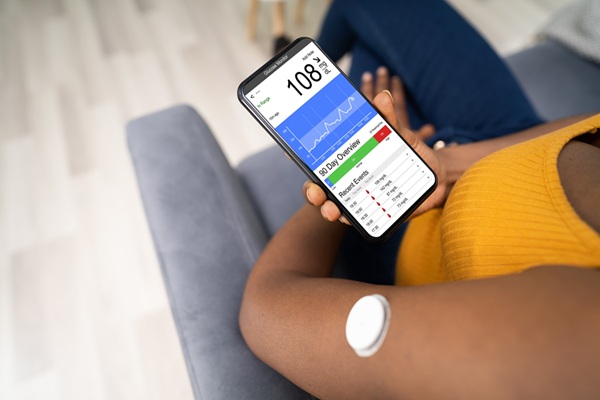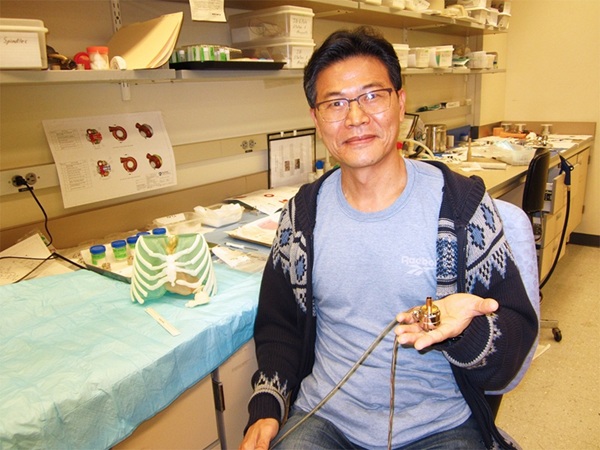Antibiotics Could Avert Surgery in Uncomplicated Appendicitis
|
By HospiMedica International staff writers Posted on 28 Jun 2015 |
A new study suggests most patients with an inflamed appendix could be treated with antibiotics and avoid an appendectomy.
Researchers at the University of Eastern Finland (Joensuu, Finland), Turku University Hospital (Finland), and other institutions conducted a study involving 530 patients (18–60 years of age) in Finland with uncomplicated acute appendicitis, as confirmed by computed tomography (CT). Patients were randomly assigned to standard open appendectomy or to an antibiotic regimen that involved intravenous ertapenem for three days, followed by seven days of oral levofloxacin and metronidazole. End points were surgical success or hospital discharge without the need for surgery, and no recurrent appendicitis during the follow-up period.
The results showed that of the 273 patients in the surgical group, all but one underwent successful appendectomy, resulting in a success rate of 99.6%. Of the 256 patients available for follow-up in the antibiotic group, 72.7% did not require subsequent surgery. Of those that did require surgery, 82.9% had uncomplicated appendicitis, 10% had complicated acute appendicitis, and 7.1% did not have appendicitis but received appendectomy for suspected recurrence. There were no intra-abdominal abscesses or other major complications associated with delayed appendectomy. The study was published on June 16, 2015, in the Journal of the American Medical Association (JAMA).
“For more than a century, appendectomy has been the standard treatment; but about 80% of patients with an inflamed appendix don't need to have their appendix surgically removed, and those who ultimately do need the surgery aren't hurt by waiting,” said lead author Paulina Salminen, MD, PhD, of Turku University Hospital. “Now we know that only a small proportion of appendicitis patients need an emergency operation.”
“It's kind of lost to history why people started doing appendectomies, but it has become so routine that when someone comes in with appendicitis they get whisked into the operating room. However, a lot has changed in 130 years, for example the ability to diagnose appendicitis; it's almost perfect with CT scans,” said Edward Livingston, MD, coauthor of an accompanying editorial and deputy editor of JAMA. “I am a surgeon and I hope to get through life without ever having an operation. So if I were given the option of taking antibiotics and not have surgery, I would take antibiotics in a heartbeat.”
Appendectomy is the surgical removal of the vermiform appendix. The procedure is normally performed as an emergency procedure, when the patient is suffering from acute appendicitis. In the absence of surgical facilities, intravenous antibiotics are used to delay or avoid the onset of sepsis. In some cases the appendicitis resolves completely; more often, an inflammatory mass forms around the appendix, causing transruptural flotation.
Related Links:
University of Eastern Finland
Turku University Hospital
Researchers at the University of Eastern Finland (Joensuu, Finland), Turku University Hospital (Finland), and other institutions conducted a study involving 530 patients (18–60 years of age) in Finland with uncomplicated acute appendicitis, as confirmed by computed tomography (CT). Patients were randomly assigned to standard open appendectomy or to an antibiotic regimen that involved intravenous ertapenem for three days, followed by seven days of oral levofloxacin and metronidazole. End points were surgical success or hospital discharge without the need for surgery, and no recurrent appendicitis during the follow-up period.
The results showed that of the 273 patients in the surgical group, all but one underwent successful appendectomy, resulting in a success rate of 99.6%. Of the 256 patients available for follow-up in the antibiotic group, 72.7% did not require subsequent surgery. Of those that did require surgery, 82.9% had uncomplicated appendicitis, 10% had complicated acute appendicitis, and 7.1% did not have appendicitis but received appendectomy for suspected recurrence. There were no intra-abdominal abscesses or other major complications associated with delayed appendectomy. The study was published on June 16, 2015, in the Journal of the American Medical Association (JAMA).
“For more than a century, appendectomy has been the standard treatment; but about 80% of patients with an inflamed appendix don't need to have their appendix surgically removed, and those who ultimately do need the surgery aren't hurt by waiting,” said lead author Paulina Salminen, MD, PhD, of Turku University Hospital. “Now we know that only a small proportion of appendicitis patients need an emergency operation.”
“It's kind of lost to history why people started doing appendectomies, but it has become so routine that when someone comes in with appendicitis they get whisked into the operating room. However, a lot has changed in 130 years, for example the ability to diagnose appendicitis; it's almost perfect with CT scans,” said Edward Livingston, MD, coauthor of an accompanying editorial and deputy editor of JAMA. “I am a surgeon and I hope to get through life without ever having an operation. So if I were given the option of taking antibiotics and not have surgery, I would take antibiotics in a heartbeat.”
Appendectomy is the surgical removal of the vermiform appendix. The procedure is normally performed as an emergency procedure, when the patient is suffering from acute appendicitis. In the absence of surgical facilities, intravenous antibiotics are used to delay or avoid the onset of sepsis. In some cases the appendicitis resolves completely; more often, an inflammatory mass forms around the appendix, causing transruptural flotation.
Related Links:
University of Eastern Finland
Turku University Hospital
Latest Surgical Techniques News
- 3D-Printed Blood Vessel Scaffolds Could Transform Heart Bypass Surgeries
- Novel Imaging Technique Helps View Blood Perfusion During Esophageal Surgery
- Minimally Invasive Surgery Proven Safe and Effective for Complex ‘Whipple’ Procedure
- Catheter-Based Procedures Offer Less Invasive Option for Treatment of Valvular Disease
- Laparoscopic Surgery Improves Outcomes for Severe Newborn Liver Disease
- Novel Endoscopy Technique Provides Access to Deep Lung Tumors
- New Study Findings Could Halve Number of Stent Procedures
- Breakthrough Surgical Device Redefines Hip Arthroscopy
- Automated System Enables Real-Time "Molecular Pathology" During Cancer Surgery
- Groundbreaking Procedure Combines New Treatments for Liver Tumors
- Ablation Reduces Stroke Risk Associated with Atrial Fibrillation
- Optical Tracking Method Identifies Target Areas in Robot-Assisted Neurosurgery
- General Anesthesia Improves Post-Surgery Outcomes for Acute Stroke Patients
- Drug-Coated Balloons Can Replace Stents Even in Larger Coronary Arteries
- Magnetic Kidney Stone Retrieval Device Outperforms Ureteroscopic Laser Lithotripsy
- Absorbable Skull Device Could Replace Traditional Metal Implants Used After Brain Surgery
Channels
Critical Care
view channel
AI-Enhanced Wearables Could Transform Type 2 Diabetes and Prediabetes Care
Artificial intelligence (AI)–powered wearable devices, particularly continuous glucose monitors, are rapidly changing how people with prediabetes and Type 2 diabetes understand and manage their blood sugar.... Read more
Breathable Electronic Skin Paves Way for Next-Generation Wearable Devices
Electronic skin devices are designed to adhere closely to the human body to monitor health and biosignals, but long-term use often leads to skin irritation caused by trapped sweat and poor breathability.... Read morePatient Care
view channel
Revolutionary Automatic IV-Line Flushing Device to Enhance Infusion Care
More than 80% of in-hospital patients receive intravenous (IV) therapy. Every dose of IV medicine delivered in a small volume (<250 mL) infusion bag should be followed by subsequent flushing to ensure... Read more
VR Training Tool Combats Contamination of Portable Medical Equipment
Healthcare-associated infections (HAIs) impact one in every 31 patients, cause nearly 100,000 deaths each year, and cost USD 28.4 billion in direct medical expenses. Notably, up to 75% of these infections... Read more
Portable Biosensor Platform to Reduce Hospital-Acquired Infections
Approximately 4 million patients in the European Union acquire healthcare-associated infections (HAIs) or nosocomial infections each year, with around 37,000 deaths directly resulting from these infections,... Read moreFirst-Of-Its-Kind Portable Germicidal Light Technology Disinfects High-Touch Clinical Surfaces in Seconds
Reducing healthcare-acquired infections (HAIs) remains a pressing issue within global healthcare systems. In the United States alone, 1.7 million patients contract HAIs annually, leading to approximately... Read moreHealth IT
view channel
EMR-Based Tool Predicts Graft Failure After Kidney Transplant
Kidney transplantation offers patients with end-stage kidney disease longer survival and better quality of life than dialysis, yet graft failure remains a major challenge. Although a successful transplant... Read more
Printable Molecule-Selective Nanoparticles Enable Mass Production of Wearable Biosensors
The future of medicine is likely to focus on the personalization of healthcare—understanding exactly what an individual requires and delivering the appropriate combination of nutrients, metabolites, and... Read moreBusiness
view channel
Philips and Masimo Partner to Advance Patient Monitoring Measurement Technologies
Royal Philips (Amsterdam, Netherlands) and Masimo (Irvine, California, USA) have renewed their multi-year strategic collaboration, combining Philips’ expertise in patient monitoring with Masimo’s noninvasive... Read more
B. Braun Acquires Digital Microsurgery Company True Digital Surgery
The high-end microsurgery market in neurosurgery, spine, and ENT is undergoing a significant transformation. Traditional analog microscopes are giving way to digital exoscopes, which provide improved visualization,... Read more
CMEF 2025 to Promote Holistic and High-Quality Development of Medical and Health Industry
The 92nd China International Medical Equipment Fair (CMEF 2025) Autumn Exhibition is scheduled to be held from September 26 to 29 at the China Import and Export Fair Complex (Canton Fair Complex) in Guangzhou.... Read more















